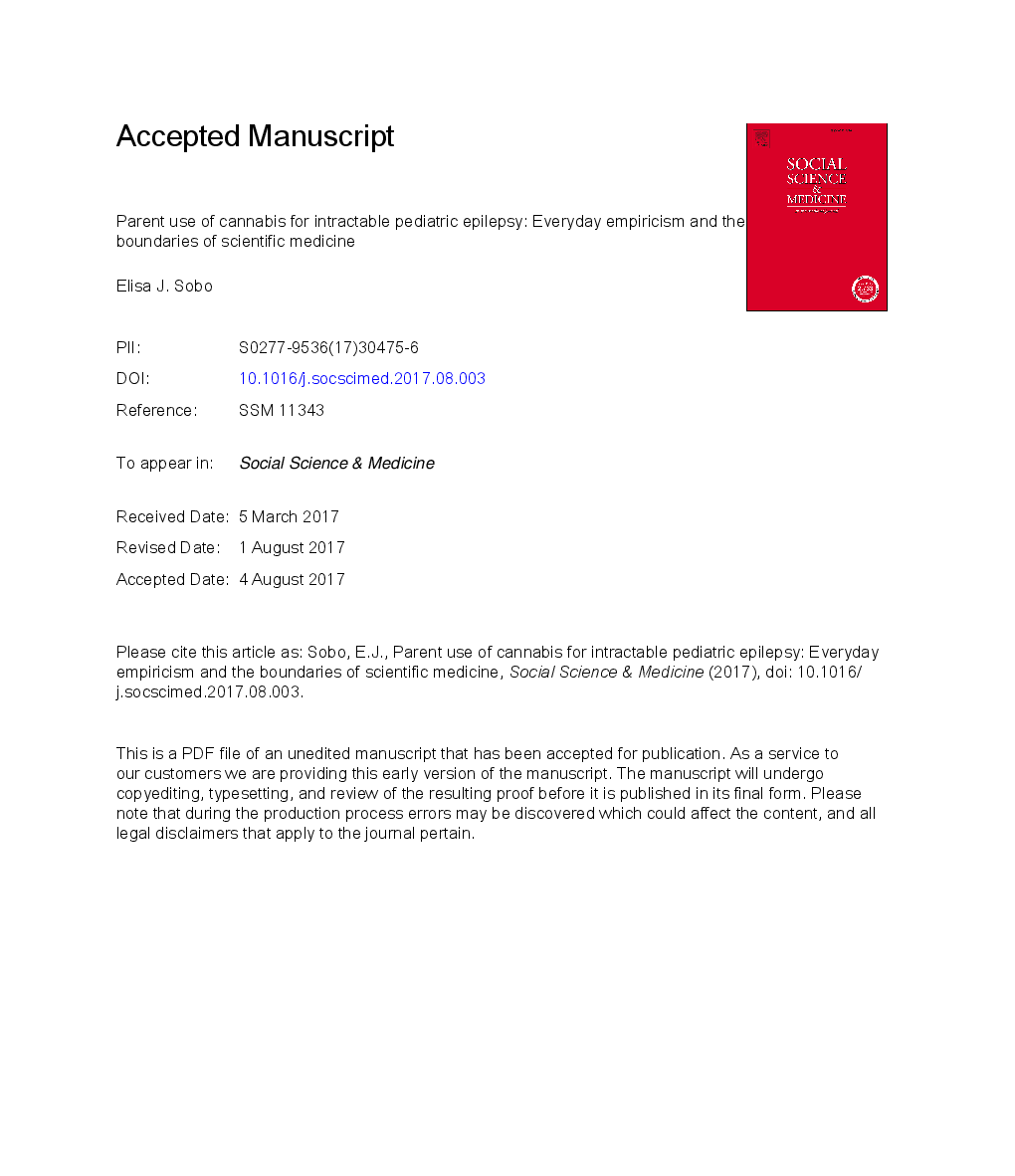ترجمه فارسی عنوان مقاله
استفاده والدین از شاهدانه برای صرع جدی کودکان: تجربی روزمره و مرزهای پزشکی علمی
عنوان انگلیسی
Parent use of cannabis for intractable pediatric epilepsy: Everyday empiricism and the boundaries of scientific medicine
| کد مقاله | سال انتشار | تعداد صفحات مقاله انگلیسی |
|---|---|---|
| 140546 | 2017 | 43 صفحه PDF |
منبع

Publisher : Elsevier - Science Direct (الزویر - ساینس دایرکت)
Journal : Social Science & Medicine, Volume 190, October 2017, Pages 190-198

